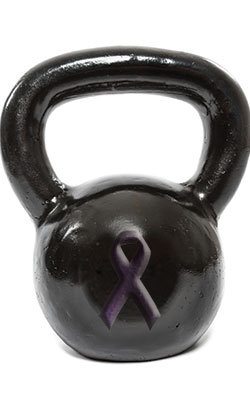Exercise might ward off certain cancers as men age, a new study suggests.
Researchers from the University of Vermont, the Cooper Institute, the University of Texas, Duke University, and Memorial Sloan Kettering Cancer Center studied some 14,000 men to determine whether cardiorespiratory fitness (CRF) in middle age prevents the development of cancer later in life.
Starting in 1971, researchers used treadmill exercise tests to assess then-middle-age participants’ baseline fitness levels; the men were 40 to 57 years old when they did the first treadmill tests. Over the following decades, the researchers reviewed Medicare claims data as participants turned 65, focusing on incidences of lung, colorectal, and prostate cancers.
Men who scored higher in CRF had roughly half the rate of lung and colorectal cancer diagnoses than their less-fit counterparts. (The researchers did not identify a link between fitness and prostate cancer.)
What’s more, men who maintained high CRF while undergoing treatment for cancer were more likely to survive, suggesting exercise may play both an offensive and defensive role.
Lead author Susan Lakoski, MD, from the University of Vermont, noted that the study, published online in March 2015 by JAMA Oncology, didn’t explore whether individuals who start exercising after they receive a cancer diagnosis can reap the same benefits. But abundant research suggests that improved health and fitness levels translate to better outcomes overall.
Worth noting: Any exercise that raises your heart rate (including sprints and intensive strength training) can be beneficial to your CRF.



This Post Has 0 Comments